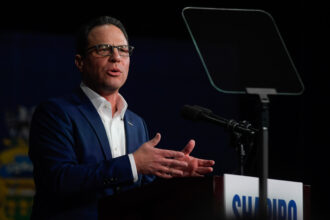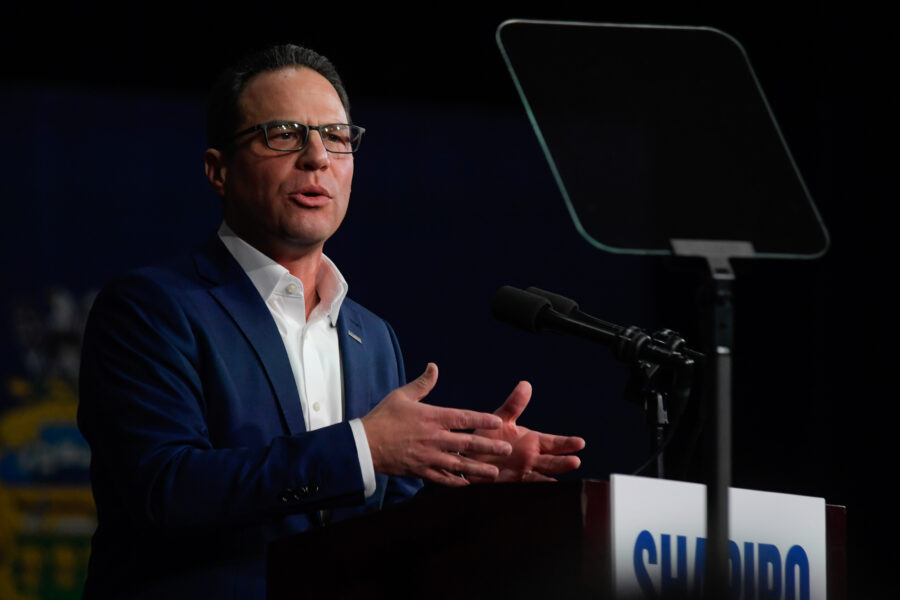More than 6,000 U.S. companies — a record amount — are calling on Congress to pass a climate bill this year that puts a price on emissions of carbon dioxide and other heat-trapping gases, according to a recent tally by two major business coalitions.
The groups behind the analysis, the American Businesses for Clean Energy (ABCE) and the We Can Lead campaign, said the results are proof that business demand for climate action is "growing rapidly."
"We have an unprecedented tally of businesses large and small that are urging the Senate and the White House…to pass a piece of comprehensive [climate and energy] legislation," said Christopher Van Atten, a spokesperson for ABCE, a six-month-old umbrella organization.
The list of companies represents a wide cross-section of U.S. industry and covers 21 Fortune 100 companies and 49 Fortune 500 firms. It includes corporate giants Target, Bank of America, IBM, Boeing, General Electric and Starbucks.
In total, the businesses employ an estimated 3.5 million Americans and boast a market capitalization that exceeds $2.6 trillion.
According to Tim Greeff, co-manager of We Can Lead, a coalition of energy, technology and other firms, all the companies share a common goal of enacting a long-term carbon price signal that rewards clean energy innovation.
"There is a strong, broad and diverse business voice who is tired of the same old status quo energy policies that continue to force jobs overseas, that continue to keep business chained to higher and rapidly fluctuating energy prices," he said. "They want to see some change."
The No. 1 fear of businesses, the coalitions said, is that without a climate bill in place, the U.S. will lose its competitive edge to China and other leaders of the global clean energy economy. According to Greeff, U.S. lawmakers are "not seeing the big picture."
"[Washington] is not willing to take the big leaps that we need to keep up with the China’s, the Germany’s, the Japan’s and the India’s," Greeff said. "Set the market signals, and we can take it from there."
"The reality is that these issues are not partisan until they get to Washington DC," Greeff added.
Indeed, the growing support from big business for climate legislation comes at a time of increasing uncertainty about whether a bill can actually pass Congress this year.
Last June, the U.S. House narrowly passed the Waxman-Markey American Clean Energy and Security (ACES) Act. Earlier this month, after eight months of negotiations, Sens. John Kerry (D-Mass.) and Joseph Lieberman (I-Conn.) rolled out their much-anticipated Senate counterpart, the American Power Act. While there are differences in approach, both bills would create a greenhouse gas cap-and-trade market and would cap emissions at 17 percent below 2005 levels by 2020 and 83 percent by 2050.
The Senate legislation, however, is a longshot for passage this year in the face of Republican opposition and the weeks-long Gulf Coast oil spill, which has complicated the legislation’s already difficult prospects. The impasse leaves climate and energy reform in 2010 hanging by a thread.
The business coalitions would not say which bill they support but agreed that the "types of policies" in each would help give companies a leg up on the clean energy competition.
"It is not our role to engage in the details of the legislation," said Van Atten. "We continue to press for action on climate and energy legislation without endorsing a specific piece of legislation."
Despite the grim outlook for real Congressional action, the groups — at least publicly — expressed optimism that the Senate would pass some version of a climate law in 2010, but conceded it would be a challenge.
"It is a tough environment to pass a climate and energy bill, but I can’t remember in all my years of working on these issues when there was a good environment for any major signification reform, regardless of issue," Greeff said.
"With the business support behind this, we think that its a realistic possibility to still move climate and energy legislation this year."
See also:
Senate Climate Bill Draws Both Praise and Ire from Energy Industry
Greens Take Aim at Offshore Drilling Allowance in Senate’s New Climate Bill
Creative Compensation Plans Weave Sustainability into the Fabric of Business
Study: Carbon Cap Has Little Impact on Small Businesses
About This Story
Perhaps you noticed: This story, like all the news we publish, is free to read. That’s because Inside Climate News is a 501c3 nonprofit organization. We do not charge a subscription fee, lock our news behind a paywall, or clutter our website with ads. We make our news on climate and the environment freely available to you and anyone who wants it.
That’s not all. We also share our news for free with scores of other media organizations around the country. Many of them can’t afford to do environmental journalism of their own. We’ve built bureaus from coast to coast to report local stories, collaborate with local newsrooms and co-publish articles so that this vital work is shared as widely as possible.
Two of us launched ICN in 2007. Six years later we earned a Pulitzer Prize for National Reporting, and now we run the oldest and largest dedicated climate newsroom in the nation. We tell the story in all its complexity. We hold polluters accountable. We expose environmental injustice. We debunk misinformation. We scrutinize solutions and inspire action.
Donations from readers like you fund every aspect of what we do. If you don’t already, will you support our ongoing work, our reporting on the biggest crisis facing our planet, and help us reach even more readers in more places?
Please take a moment to make a tax-deductible donation. Every one of them makes a difference.
Thank you,











